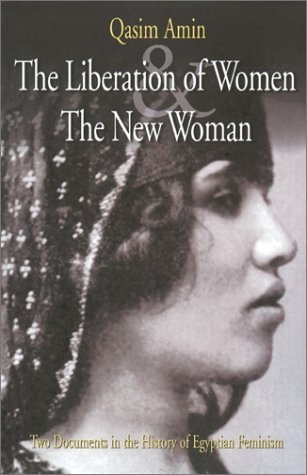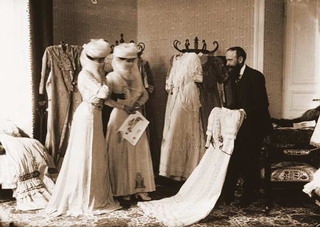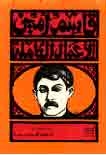 |
Qasim Amin was a revolutionary, not only for the time period during which he promoted his forward-minded position on women’s liberation, but for the culture and faith within which he boldly spoke his mind.
Born into an aristocratic family in Egypt in 1863, Amin was a man before his time.
He held a law degree and later a high military ranking before leaving Egypt to study in France at the College of Montpellier. There, he became knowledgeable on Western political, legal, and societal thought. This, perhaps above all else, would lead him towards his life’s work.
Upon returning to Egypt, in 1885 Amin married into another well-to-do family and was appointed a judge.
A disciple and translator of Muhammad Abduh within the Islamic faith, at the age of 36 Amin published bold writings under the title Tahrirul Marah (The Liberation of Women), within which his teacher allegedly also made secret contributions.
Given the time period – the beginning of the 20th century – and the traditional Islamic culture within Egypt, Amin’s work was immediately deemed controversial and received much criticism in newspapers and the press. Nevertheless, it also gained popularity quickly and, controversial or not, his statements in favor of the emancipation of women began to slowly infiltrate the otherwise male-dominated and highly structured society.
 |
Because of increased pressure from conservative opponents who viewed Amin and his work as a threat to Islam, a year later, he replicated the booklet with a few minor revisions, and a revised, less “controversial” title: Al Marah Jadidah (The New Women).
Amin knew quite well that his writings would not be well received by all. He understood that by questioning the established cultural norms, and by probing investigation into the status and lives of Muslim women, he would experience harsh resistance. In fact, his booklet’s opening paragraph addresses the fight he knew he would face:
“Some people will say that today I’m publishing heresy. To these people I will respond: Yes, I have come up with heresy, but the heresy is not against Islam. It is against our tradition and social dealings, which ought to be brought to perfection.”
Despite the opposition, though, his writings established him as a forerunner in the fight for women’s liberation in the Islamic world.
 |
| A french designer shows off his creations to two high-society Egyptian women circa 1909. |
One concept that made Amin particularly innovative for his time was the fact that he recognized that the oppression of women superseded class and financial status.
In fact, much of his work focused on the position of upper class women whom he claimed were so bound within societal and domestic constraints that they were basically prisoners within their own homes, akin to slaves. He felt that these women in particular were held in seclusion from public life by their powerful husbands, their intellect held captive by their forced lack of education.
His own mother was an upper class Egyptian, and his father, an Ottoman, was an administrator in Kurdistan and later in Egypt. Likewise, Amin was quite familiar with aristocratic society and the plight of women within it.
Amin felt that women, who were endowed with the position of raising children, the nation’s future, should likewise be provided with an education in order to do so properly, to the full capacity of their intellect, both academically and within Islamic scholarship.
He felt that because these women -- who were literally raising Egypt’s future leaders -- were held in relative ignorance, they would likewise pass down archaic values and self-indulgent lifestyles, perpetuating ancient patriarchal traditions.
Innovative, if not outright radical for his time, Amin also felt that in order for these changes to become accessible to women, some of the ideals behind veiling and seclusion had to change as well.
He pointed out that the Quran made no mention of veiling of the hands or palms, and yet women in society at the time were obligated to do so. Amin felt that women should not have to cover their face or hands, considering these coverings obstructions to the work they could accomplish otherwise.
He also argued that aristocratic women should not be secluded from society, and that even a woman without an education would be better equipped to manage a home if she at least had some social knowledge.
 |
Yet despite his bold stances, Amin’s work was more accepted than that of other reformists of the time for a variety of reasons.
Foremost, he remained respectful of the patriarchal culture within which he lived – only addressing some practices of veiling, without calling for further clothing reform, and still promoting women as the nurturers of the home, raising future male leaders, and stating that they should be better equipped with an education to do so.
These, coupled with the fact that he, himself, was an aristocrat and a prominent state judge, allowed his writing to be received with greater credibility than that of his counterparts. Wise and well-versed in aristocratic society, Amin knew his audience, what he needed to say to get them to listen, and how far he could push reform without being deemed too outlandish to be considered credible.
Amin went on to become one of the founders of the Egyptian National Movement, as well as of Cairo University.
Although he died in 1908, Qasim Amin’s forward-minded ideology is still the basis for modern Muslim reform, and his teachings continue to serve as an inspiration in the movement towards the emancipation of women within the Islamic world.
Page created on 7/20/2007 12:19:56 PM
Last edited 4/22/2019 9:15:28 PM
"Are people amazed at my demand to grant freedom to women, and with my assessment of their condition as slaves? If they understand the meaning of freedom they will not take odds with our view...I say that a woman in the opinion of Muslims as a whole is not a woman in full, and that the Muslim man considers that to him belongs the right to rule over her and conducts himself in his dealings with her according to this understanding...
It is not due simply to custom in many families that women do not receive the hand of men upon being greeted, nor is it due merely to custom that women do not sit with men, nor because of custom do they eat with them. I have often seen the man sitting at the dining table while the woman stands driving the flies away from him, and his daughter brings water to him...The man who forbids his wife from leaving her house for no reason other than his wish that she not go out is restricting her freedom. She is, from this point of view, a slave, more than this, a prisoner in her own house and worse off than a slave...They count it among their most glorious achievements when it can be said that the woman never left her house except to be carried to her tomb!
There is no doubt that the man's decision to imprison his wife contradicts the freedom which is the woman's natural right...
It cannot be said that the conditions of the man and the woman are equal. Because of the fact that he does not know his wife before they marry, the man can end the matter at any time by divorcing her as he wishes, or, marry in addition to her a second, a third, or a fourth. However, the woman who is afflicted with a man who does not satisfy her with his companionship has no escape. That a woman may be given in marriage to a man she does not know who forbids her the right to leave him and forces her to this or that and then throws her out as he wishes: this is slavery indeed!
The woman who is forbidden to educate herself save in the duties of the servant, or is limited in her educational pursuits is indeed a slave, because her natural instincts and God-given talents are subordinated i deference to her condition, which is tantamount to moral enslavement. The who is completely veiled - arms, legs, body - so that she cannot walk, ride, breathe, see, or speak except with difficulty is to be reckoned a slave.
In short, the woman from her birth to the day of her death is a slave because she does not live by herself and for herself. Instead, she lives for the man. She is dependent upon him in every way..."
Qasim Amin, Al-Marat al Jadidah (Cairo, 1900), pp. 30-34. Translated by Ted Thornton, NMH Middle East Resource Center.
